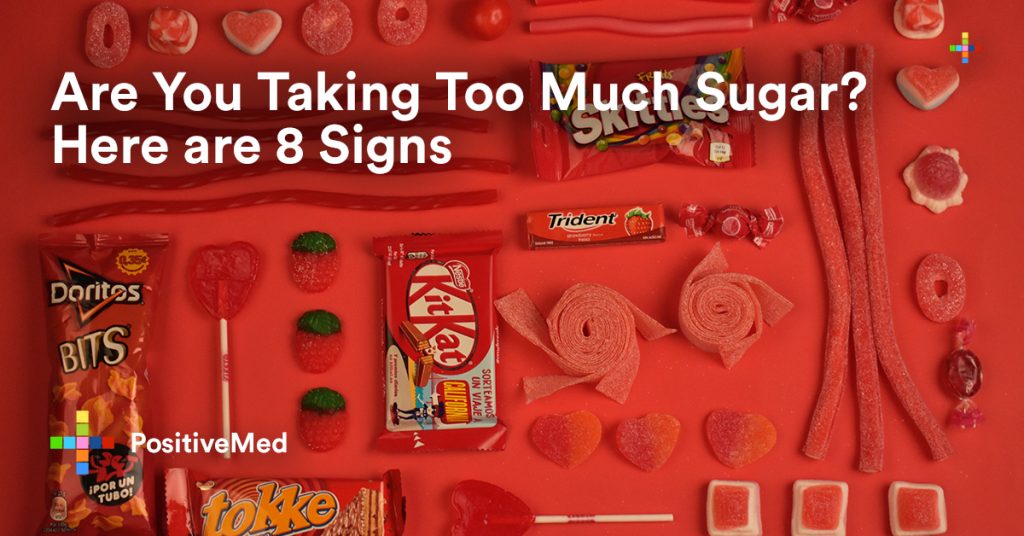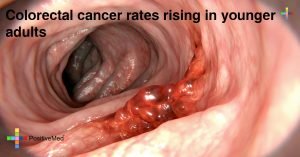Regardless of whether you have a sweet tooth or don’t like much, sugar is in nearly every packaged food you purchase. Chances are that you are consuming more sugar unknowingly. Any form of refined sugar and its other alternatives is partially to blame for the increasing number of medical conditions. You may not find the word “sugar” in the ingredients list of packaged food, but it may appear as:

• Dextrin
• Sorbitol
• Corn syrup/sweetener
• Glucose
• Malt syrup
• Fructose
• Evaporated cane juice
• Disaccharides
• Hydrolyzed starch
• Maltose
• Sucrose
• Rice syrup
• High fructose corn syrup
• Maltodextrin
It can be difficult to tell how much sugar is too much with all these source of sugar.
Below are some symptoms which could indicate that you need to cut down sugar in your diet .
Sugar/carbs cravings
Just like cocaine, sugar is addictive and the effects are the same. When you consume sugar, it triggers the release of a pleasure hormone called dopamine. Unknowingly, you may develop a craving for sweets and simple carbohydrates to get your “fix”. Similar to other addictions, your body develops tolerance for sugar and thus the more you consume, the more you want. This happens even when you are not feeling hungry.
Fatigue and Lack of Energy
There are types of neuropeptide called orexins which form protein in the brain. These transmitters regulate the sleep/wake cycle and other things in the hypothalamus. Because they are sensitive to sugars, their responses depend upon glucose levels in your body. Even a slight increase in blood sugar inhibits the transmission of neural signals by orexins. In turn, they induce a sleep state. That means you may experience wakefulness or alertness soon after eating or drinking. When the sugar levels decline in the body, you start feeling tired or exhausted.
Weight Gain
When taken in excess, sugar can make you fat. Though other factors such as metabolic rates determine your weight, your body first converts sugar into energy. If the sugar is not needed immediately, it is stored as fat for future use. Additionally, ingesting too much sugar suppresses a hormone called leptin, which signals the body when to stop eating. Most people who become lethargic and feel tired from taking sugar are also less likely to work out.
When there is a rise in blood sugar, your body produces insulin to get it back to normal. If the sugar level fluctuates or become too low, your body craves for more energy. So you end up eating even when you are not hungry.
Recurrent Flu and Cold
Excessive consumption of sugar negatively impacts your immune system. This is mainly because glucose interferes with the activity of white blood cells, which fights pathogens and viruses. Ingesting too much sugar makes you susceptible to any contagious infections circulating around. This is as a result of your body’s inability to defend itself against communicable illnesses.
Impaired Taste Buds
Nearly every person defines a sweet taste as something pleasurable. Your tongue becomes used to various flavors including sugar. A study conducted by British researchers found that people who are overweight develop dulled sensitivity to sweets and a liking for sugary foods. The same study also discovered something in healthy and fit participants who started taking 2 soft drinks daily. They developed sugar cravings and dulled taste buds after just 4 weeks.
Brain Fogginess
In reference to a study in the journal Neuroscience, mice which were fed a diet similar to typical western communities experienced a reduced brain function in just 2 months. This is because high levels of sugar impact proteins and neurotransmitters in the brain which regulates learning and memory. In other words, sugar makes your brain foggy.
Related Link: What Happens to Your Belly Fat and Blood Sugar When You Eat 2 Tbsp….
Skin Issues
Your skin’s ability to produce collagen defines its texture and structure. Naturally, sugar molecules bind collagen to help collagens cells circulate around. Higher levels of sugar in the body can make the collagen cells less mobile. As a result, it may cause stiffness of skin tissues. When your skin loses elasticity, wrinkles, fine lines, and other problems may surface.
Additionally, sugar triggers cellular inflammation, which makes your skin susceptible to acne and dermatitis. Pimples can also form when there is an increase in insulin and androgen production. Androgens stimulate the production of extra oils, which clogs pores and cause pimples.
Cancer
Eventually, increased insulin production and internal inflammation can trigger abnormal and rapid production of cells in the body. Cancer cells usually thrive in sugar. That’s another major reason why you should quit the sugar habit.
The Solution
The best sources of sugar include those that naturally occur in fruits. They are also loaded with minerals, vitamins, and phytochemicals. Your daily recommended amounts depend on your age, activity level, and body size.
Here are some tips on how to overcome sugar craving:
• Avoid sugary snacks and artificial sweeteners.
• Gradually cut down your sugar intake.
• Switch sweet treats with healthy foods.
• Drink plenty of water regularly to flush out toxins and excess sugar
• Graze on healthy foods to maintain stable sugar levels.
• Try some probiotics to improve your digestive system ability to process sugar and rebalance intestinal flora.
• Exercise regularly to burn sugar before it is stored as fat.








